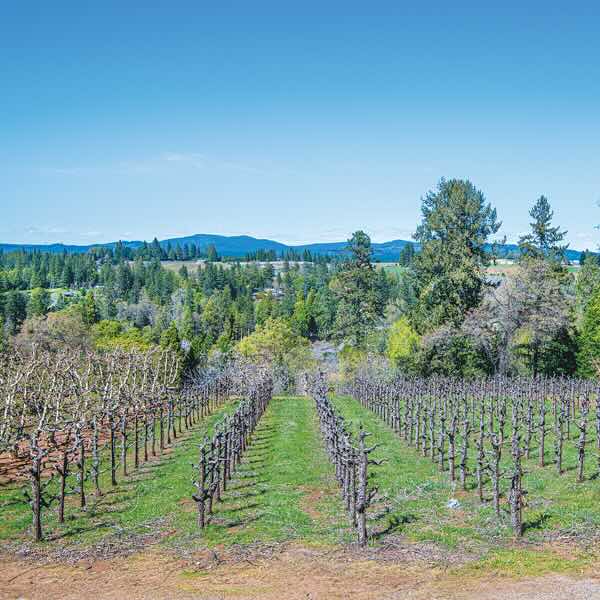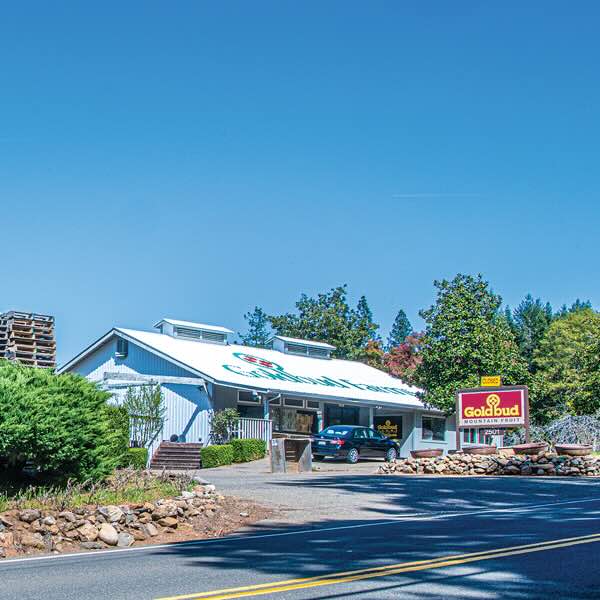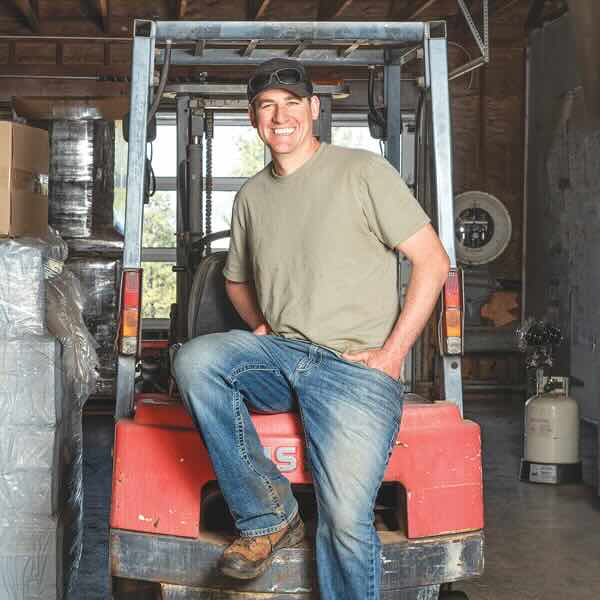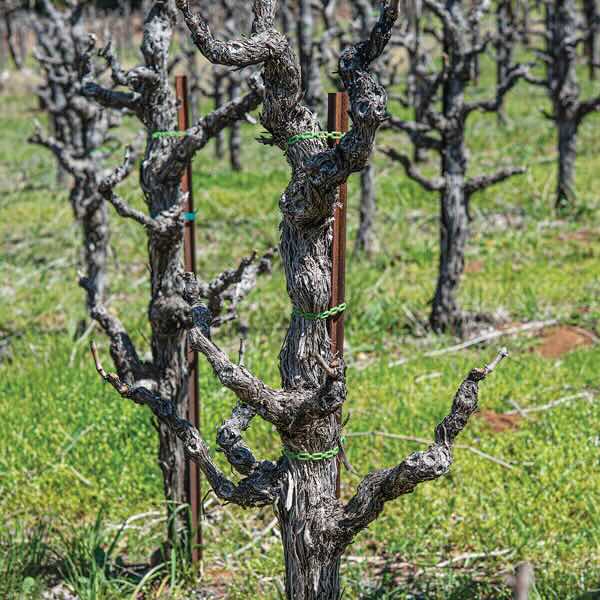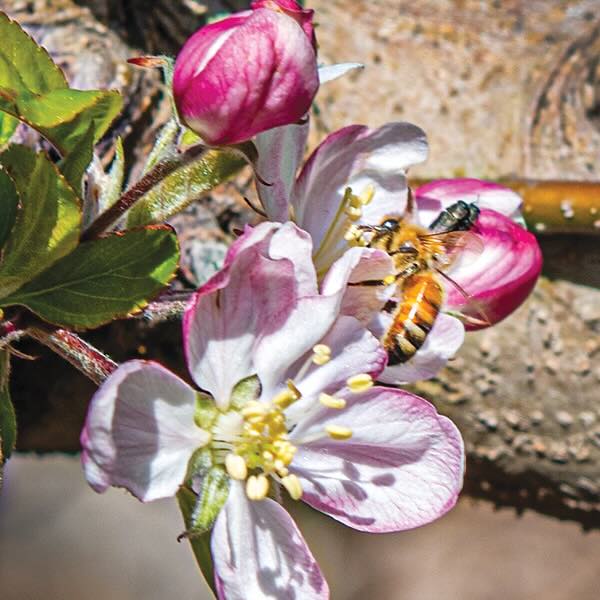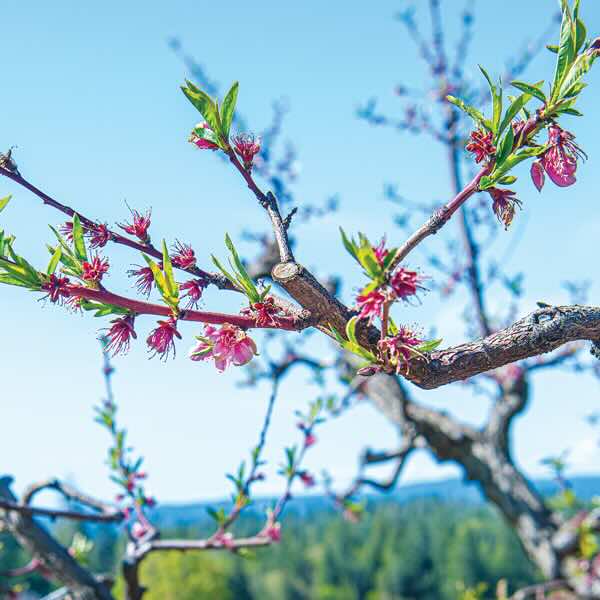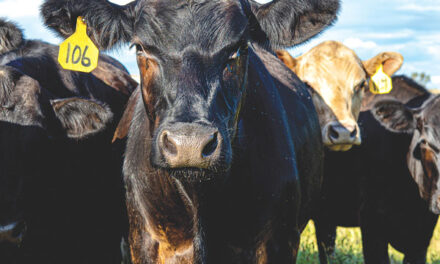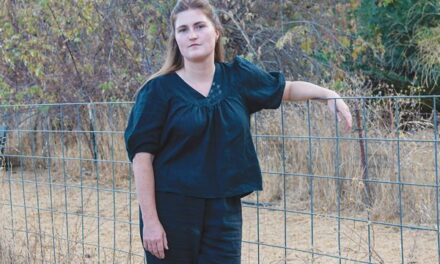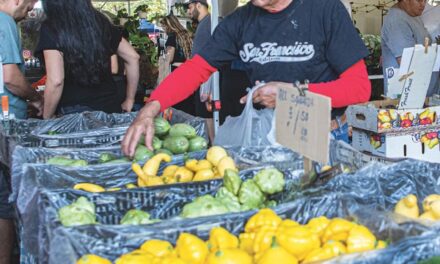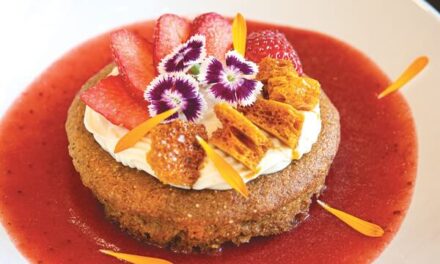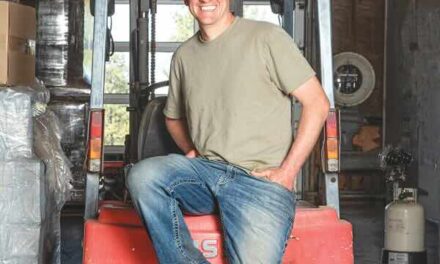Fields Of Dreams
Only the best fruit grows at Goldbud
By Gabrielle Myers
Photography by Aniko Kiezel
May 2025
On a clear morning at Goldbud Farms in Camino, after rains saturated the hilltop, we walked rows surrounded by peach, apple and pear trees. Branches bristled with rouge, white and faint pink blossoms.
Trees were building for summer’s fruit yield—a perfect balance of sugar, acid and soil.
Goldbud grows award-winning grapes and heirloom peaches, nectarines, plums and pluots. The farm also produces organic citrus, such as blood oranges, tango and owari satsuma mandarins. There are Meyer lemons and yuzus, pears and apples.
The fruit is prized. It was served at the White House through the presidencies of Reagan to Obama.
Ron Mansfield started Goldbud as a roadside fruit stand in 1981. He grew heirloom varieties with complex flavor profiles, avoiding varieties meant for long-distance shipping and durability.
As Goldbud’s reputation spread, Ron began growing wine grapes for major wineries and home craft winemakers. These days, his son Chuck Mansfield owns, operates and tends to the farm’s fruit and wine grapes across El Dorado County.
As Chuck says, “Our grape growing grew acre by acre, vineyard by vineyard.”
With diverse soils, elevation and temperature variations, plus Sierra runoff specific to each vineyard, Goldbud offers an astounding range of growing conditions. Steve Edmunds of the famed Rhône Rangers winemaker group had stunning success with Goldbud’s syrah.
Given the right soil and varietal match, and by training roots to grow deep toward the water table, Goldbud vineyards can sometimes be dry farmed, saving water.
The nuanced approach to cultivation draws customers such as Revolution Winery’s Colleen Clothier and Samuel Wharton, who talk passionately about Goldbud grapes.
Ron Mansfield died last year at 76 from Parkinson’s Disease. But he taught Chuck the highest standards, all carried out by hand.
From early in the growing cycle through harvest, Chuck and his team cater to their “heritage selections because the flavor and texture are better,” he says. He notes many growers “look for shipping, mechanization, picking and packing durability.”
The first step to bringing out the most flavorful fruit is pruning blossoms in measured ways during early spring so each branch only puts effort into fruit it can carry to ripeness.
During harvest, expert workers who have been with Goldbud for decades pick the ripest and best fruit. The final stage of selection comes in the packing shed. Only pristine fruit is prepared for shipping to arrive within 72 hours of harvest.
If the fruit isn’t ideal, it’s not thrown away, but given to food banks. They delight in the bountiful and delicious fruit.
“You have to be willing to not ship what is not perfect,” Chuck says.
Sustainability practices at Goldbud include using integrated pest management, diverse plantings in each plot of land and cover crops, and avoiding chemicals as much as possible. The farm offers several organically farmed acres with compost and synthetic fertilizers.
“There is a cost to everything we do in every farming system,” Chuck says.
To order produce and grapes or visit the farmstand in Camino (July 4 to Thanksgiving), visit goldbudfarms.com.
Gabrielle Myers can be reached at gabriellemyers11@gmail.com. Her latest book of poetry, “Break Self: Feed,” is available for $20.99 from fishinglinepress.com. Follow us on Facebook and Instagram: @insidesacramento.



